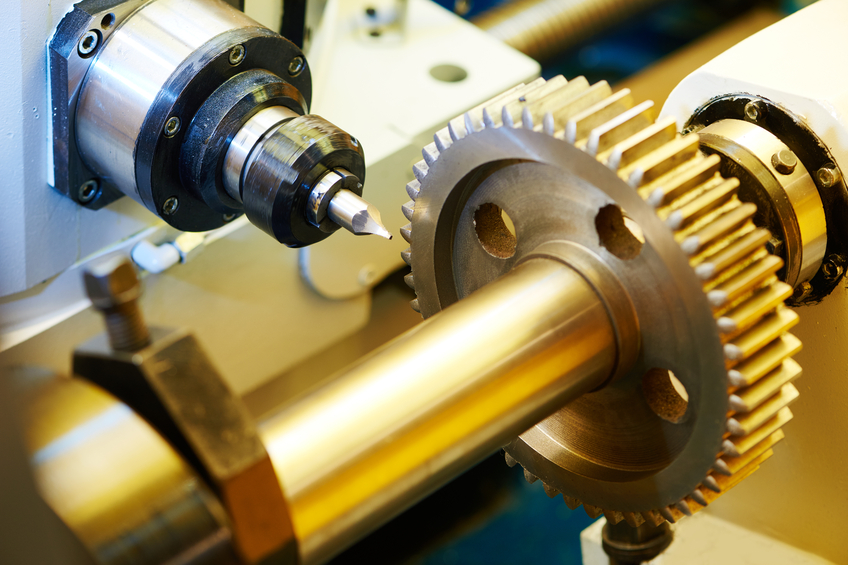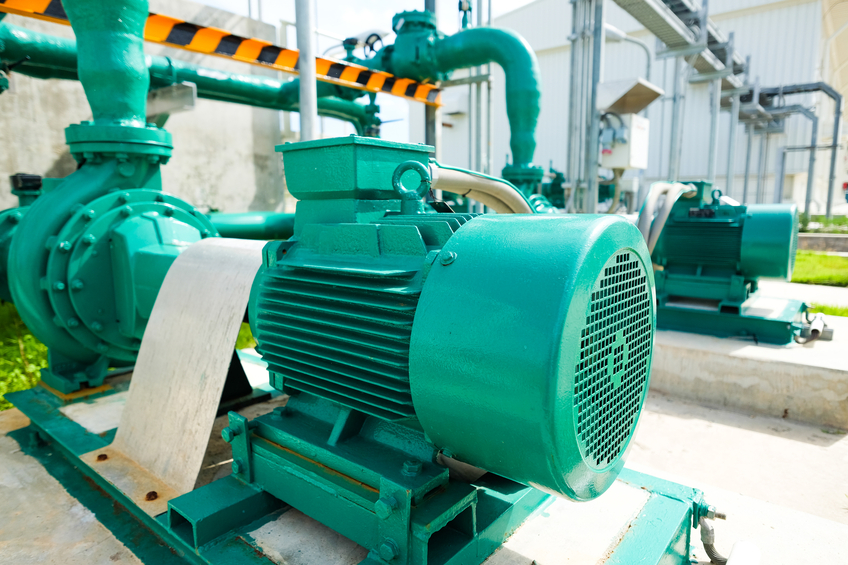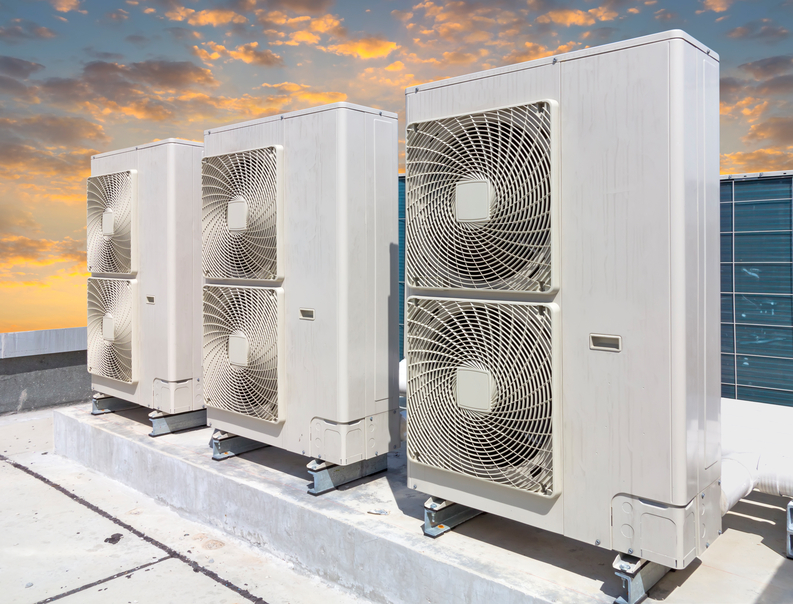Ohio Mechanical and Ethics 30 PDH Discount Package 1
Courses in this Package
Thermodynamics (M08-001)
Fluid Flow (M06-001)
Heat Transfer (M03-001)
Centrifugal and Positive Displacement Pumps (M03-002)
Introduction to Refrigeration Systems (M08-008)
Engineering Ethics for Ohio Professional Engineers (OH2-003)

This online engineering PDH course discusses the fundamentals of thermodynamics which is the study of the relationship between heat and mechanical work; it is a branch of both physics and engineering science. This course analyzes the effects of changes in temperature, pressure and volume on physical systems at a macroscopic scale. It also explains how energy balances can be performed on facility systems and how efficiency can be calculated.
This 8 PDH online course is applicable to mechanical and chemical engineers, facility operators, maintenance personnel, and other technical staff who are interested in understanding the fundamentals of thermodynamics.
This PE continuing education course is intended to provide you with the following specific knowledge and skills:
- Understanding thermodynamic properties
- Performing temperature and pressure measurements
- Learning the characteristics of energy, work, and heat
- Understanding thermodynamic systems and processes
- Understanding the change of phase
- Familiarizing with property diagrams and steam tables
- Knowing first and second law of thermodynamics
- Understanding compression processes
In this professional engineering CEU course, you need to review Volume 1 of the Department of Energy Publication DOE-HDBK-1012/1-92, "Thermodynamics" published by the Department of Energy.
Upon successful completion of the quiz, print your Certificate of Completion instantly. (Note: if you are paying by check or money order, you will be able to print it after we receive your payment.) For your convenience, we will also email it to you. Please note that you can log in to your account at any time to access and print your Certificate of Completion.

This online engineering PDH course discusses the fundamentals of Fluid Flow which is the study of the relationship between the different types of energy in a fluid stream through the use of Bernoulli's equation. The course also discusses the causes of head loss in fluid systems and what factors affect head loss.
This 6 PDH online course is applicable to mechanical and chemical engineers, nuclear facility operators, maintenance personnel, and other technical staff who are interested in understanding the mechanics of fluid flow.
This PE continuing education course is intended to provide you with the following specific knowledge and skills:
- Understanding the Continuity Equation
- Understanding Laminar and Turbulent Flow
- Learning Bernoulli's Equation
- Knowing Head Loss
- Understanding Natural Circulation
- Familiarizing with the different phases of Fluid Flow
- Understanding Centrifugal Pumps
In this professional engineering CEU course, you need to review Volume 3 of DOE-HDBK-1012/1-92, "Thermodynamics, Heat Transfer and Fluid Flow" published by the Department of Energy.
Upon successful completion of the quiz, print your Certificate of Completion instantly. (Note: if you are paying by check or money order, you will be able to print it after we receive your payment.) For your convenience, we will also email it to you. Please note that you can log in to your account at any time to access and print your Certificate of Completion.

This online engineering PDH course presents the fundamentals of Heat Transfer which is the study of thermal energy in transit due to temperature difference. Heat Transfer is a basic branch in thermal sciences which explains how heat is transferred by conduction, convection and thermal radiation. This course also explains how specific parameters can affect the rate of heat transfer.
This 3 PDH online course is applicable to mechanical and chemical engineers, nuclear facility operators, maintenance personnel, and other technical staff who are interested in understanding the mechanics of heat transfer.
This PE continuing education course is intended to provide you with the following specific knowledge and skills:
- Learning heat transfer terminology
- Understanding conduction heat transfer
- Understanding convection heat transfer
- Understanding radiant heat transfer
- Performing heat transfer design calculations
In this professional engineering CEU course, you need to review Volume 2 of the Department of Energy Publication DOE-HDBK-1012/1-92, "Thermodynamics, Heat Transfer and Fluid Flow".
Upon successful completion of the quiz, print your Certificate of Completion instantly. (Note: if you are paying by check or money order, you will be able to print it after we receive your payment.) For your convenience, we will also email it to you. Please note that you can log in to your account at any time to access and print your Certificate of Completion.

This online engineering PDH course explains the operation of centrifugal and positive displacement pumps. In general a pump is a mechanical device that is used to raise the flow of a fluid from one elevation to the other by increasing the pressure of the fluid.
Centrifugal pumps use a centripetal force, which is defined as the action that causes the fluid to move away from its center of rotation. Where as positive displacement pumps physically entrap a quantity of liquid at the suction of the pump and push that quantity out the discharge of the pump.
This 3 PDH online course is applicable to mechanical engineers, plant operators, maintenance personnel, and technical staff who are interested in gaining a better understanding centrifugal and displacement pump design and operation.
This PE continuing education course is intended to provide you with the following specific knowledge and skills:
- Learning the principle of operation of centrifugal and positive displacement pumps
- Learning the types and components of centrifugal and positive displacement pumps
- Understanding cavitation and cavitation prevention measures
- Performing Net Positive Suction Head calculations
- Understanding the characteristic curves of centrifugal and positive displacement pumps
- Understanding the protection methods of centrifugal and positive displacement pumps
In this professional engineering CEU course, you need to review DOE-HDBK-1018/1-93, Volume 1, Module 3 of Mechanical Science" published by the Department of Energy.
Upon successful completion of the quiz, print your Certificate of Completion instantly. (Note: if you are paying by check or money order, you will be able to print it after we receive your payment.) For your convenience, we will also email it to you. Please note that you can log in to your account at any time to access and print your Certificate of Completion.

This online engineering course provides necessary information to understand the principles and theory of refrigeration, the components of mechanical refrigeration systems, and the types of refrigerants and associated equipment. This course also discusses the methods used for installing, maintaining, and repairing refrigeration equipment, including domestic refrigerators and freezers.
Refrigeration is the process of removing heat from an area or a substance. It is usually done by an artificial means of lowering the temperature, such as by the use of ice or mechanical refrigeration, which is a mechanical system or apparatus, designed and constructed to transfer heat from one substance to another.
This 8 PDH online course is intended for HVACR, mechanical and industrial engineers, manufacturers, maintenance staff, and others seeking a basic understanding of refrigeration systems.
This PE continuing education course is intended to provide you with the following specific knowledge and skills:
- Understanding the physics behind heat and refrigeration
- Learning about the refrigeration cycle and its different mechanical components
- Familiarizing with the different types of refrigerants
- Understanding the safety precautions associated with refrigerants
- Familiarizing with the different types of refrigerant equipment
- Understanding the installation procedures for refrigerant equipment
- Learning about the maintenance, service, and repair procedures associated with refrigerant equipment
Upon successful completion of the quiz, print your Certificate of Completion instantly. (Note: if you are paying by check or money order, you will be able to print it after we receive your payment.) For your convenience, we will also email it to you. Please note that you can log in to your account at any time to access and print your Certificate of Completion.

This online engineering PDH course presents the laws and rules of ethics and professional responsibility governing the practice of engineering in the State of Ohio. Excerpts from Chapter 4733 of the Ohio Revised Code and Chapter 4733 of the Ohio Administrative Code, which relate to the rules of profession conduct, continuing education requirements, proper use of seal and other pertinent regulatory provisions are presented in this course.
Engineering ethics is (1) the study of moral issues and decisions confronting individuals and organizations involved in engineering and (2) the study of related questions about moral conduct, character, ideals and relationships of peoples and organizations involved in technological development (Martin and Schinzinger, Ethics in Engineering).
Since engineers are faced with frequent moral and ethical dilemmas while practicing their engineering profession, this course will provide you with moral and ethical guidance in your decision-making process. Most importantly, it will provide you with insight on how to conduct, respect and protect your engineering practice with the utmost professionalism.
This 2 PDH online course is applicable to Professional Engineers licensed in the State of Ohio and who are required to demonstrate continuing professional competency in engineering ethics as a condition of their license renewal. For each renewal period, every licensee must complete thirty (30) professional development hours, two (2) of which must be relative to the rules of professional responsibility, conduct and ethics. The remaining hours shall relate to the licensee's area of practice.
This PE continuing education course is intended to provide you with the following specific knowledge and skills:
- Understanding the Ohio laws and rules regulating the practice of engineering in the State of Ohio and their application to Professional Engineers
- Understanding the rules of professional responsibility, professional conduct and engineering ethics
- Familiarizing with the Ohio disciplinary process and the various violations and corresponding penalties imposed by the board
Upon successful completion of the quiz, print your Certificate of Completion instantly. (Note: if you are paying by check or money order, you will be able to print it after we receive your payment.) For your convenience, we will also email it to you. Please note that you can log in to your account at any time to access and print your Certificate of Completion.